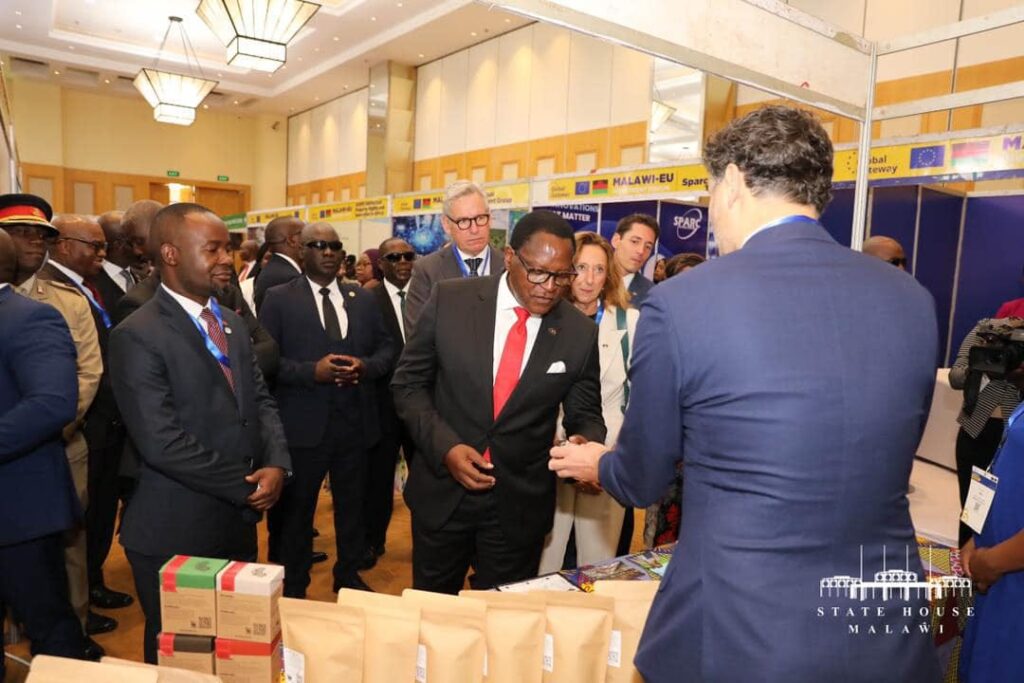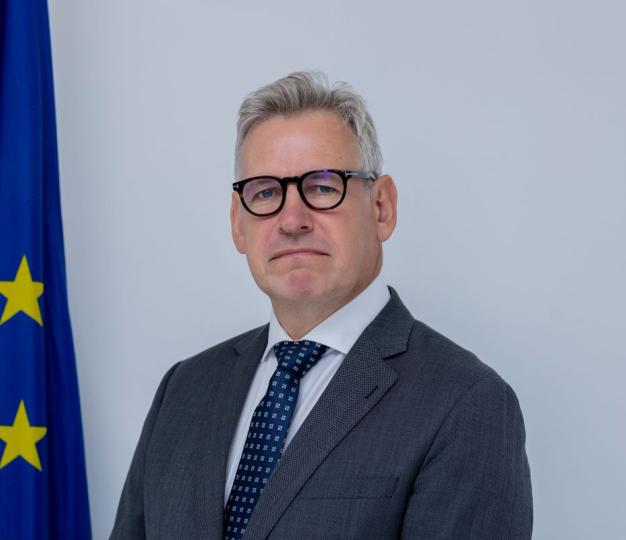Malawi and the European Union (EU) have signed three watershed agreements to help the south-east impoverished African nation to move forward in reinvigorating the country’s energy sector, public finance management and amplifying agri-economic capitalisation.
The three agreements, which reflect a shared vision and commitment between the former British colony and EU member states, were signed amid strong calls to strengthen economic ties, at a colourful ceremony Tuesday in Malawi’s capital, Lilongwe at the first ever Malawi-EU Investment Forum.
Malawi president, Dr. Lazarus MacCarthy Chakwera officially opened the three-day forum, which has brought together government officials, business captains and members of the diplomatic corps.
President Chakwera, therefore, emphasised that these partnerships are designed to create lasting economic benefits for local communities, positioning the forum as a critical step in Malawi’s economic transformation.
“The forum presents a unique opportunity for European nations to invest in Malawi’s key sectors,” President Chakwera said during the opening at the Bingu International Convention Centre.
The Malawi-EU forum seeks to animate sustainable development by aligning EU support with Malawi’s strategic priorities under the flagship Malawi 2063 (MW2063) development blueprint, the country’s long-term social and economic growth plan.

Finance and Economic Affairs minister, Simplex Chithyola-Banda signed the three agreements, which includes; 50 million euros, approximately K95 billion, Strengthening Public Financial and Economic Management project, co-funded by the EU, which has contributed five million euro, about K9 billion and Germany has put in 45 million euros, which is about K85 billion.
Furthermore, the finance minister also signed the Enhanced Energy Policy Performance Grant aimed at boosting the local energy sector, particularly in renewable and clean energy technologies.
The third pact involved the second phase of the Agriculture Commercialisation Project-Multi Donor Trust Fund, which seeks to re-energise Malawi’s agriculture sector by advancing value addition and supporting export-oriented value chains.
Speaking at the forum, EU Ambassador Rune Skinnebach noted that the focus areas; namely, agriculture, energy and tourism, align closely with MW2063 and its Malawi First 10-Year Implementation Plan (MIP-1).
“The Malawi 2063 prioritises increased agricultural productivity, energy access, and tourism development as pillars of economic transformation. These agreements reflect a shared commitment to achieving these goals,” he said.
Skinnebach, said the forum aligns with the EU’s Global Gateway Strategy.
“We aim to unlock investment opportunities that promote sustainable, inclusive growth,” he said.

EU deputy director for international partnerships Myriam Ferran said: “Our support will enable Malawi to connect with Mozambique and potentially create a situation where Malawi can export excess energy.”
Ferran implored the Malawi government to pay attention to addressing issues that matter including macroeconomic imbalances, highliting high public debt as a major obstacle to private sector growth.
She said: “One of the biggest impediments to private sector development is access to finance, which is linked to public debt.
“High public debt drives up interest rates, limiting the capacity of businesses to borrow and invest.”
Government, diplomatic representatives and industry experts expressed hope at the forum that these agreements would enhance Malawi’s participation in the EU’s Global Gateway initiative.
The Malawi-EU indaba comes hot on the heels as the EU resumes direct budgetary support to Malawi, signalling renewed confidence in the country’s economic potential
“These agreements reflect a shared commitment to achieving these goals.”
Rune Skinnebach
EU Ambassador



